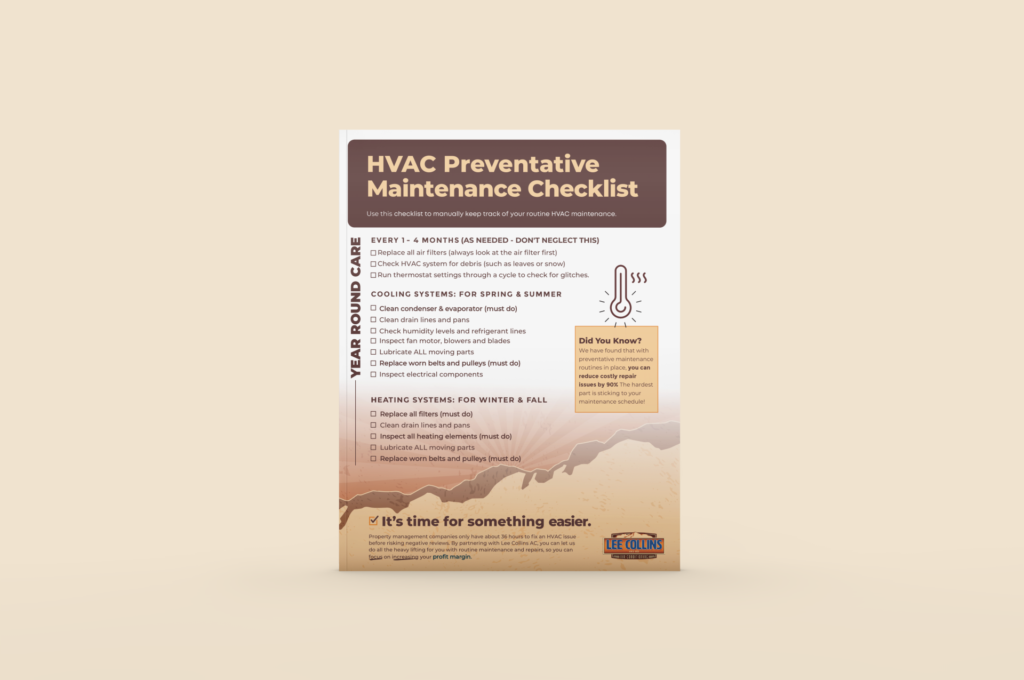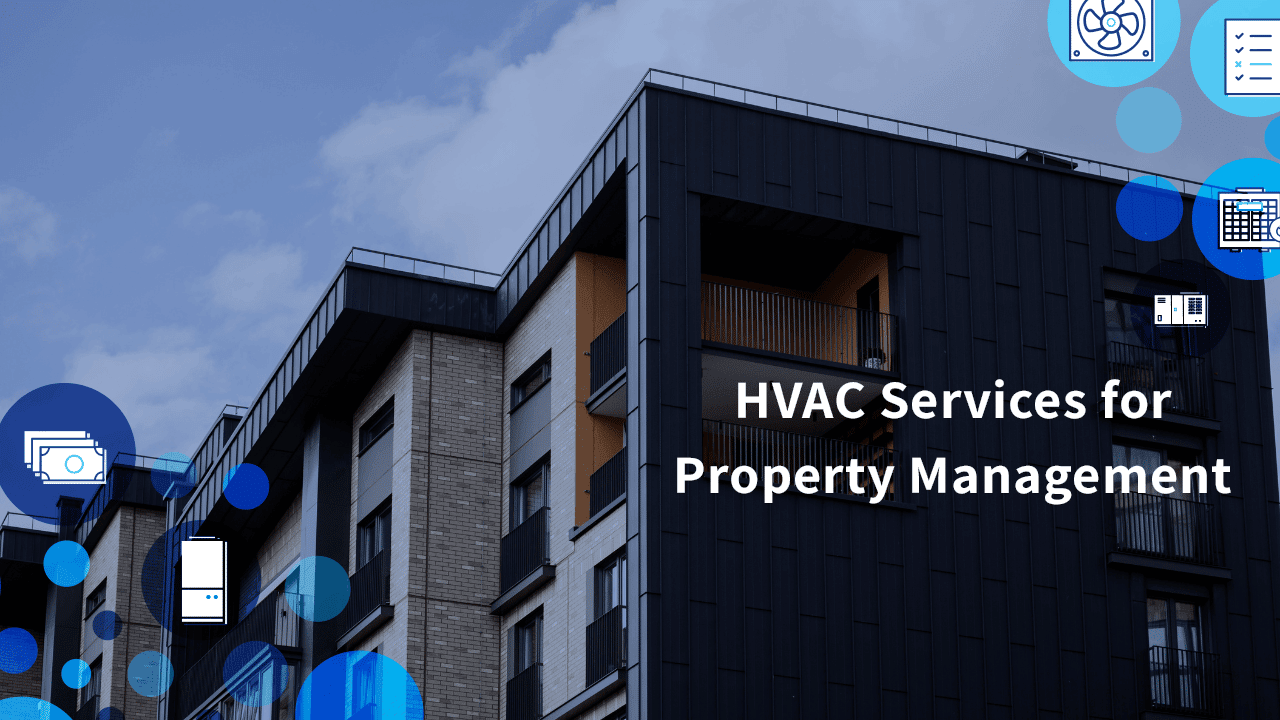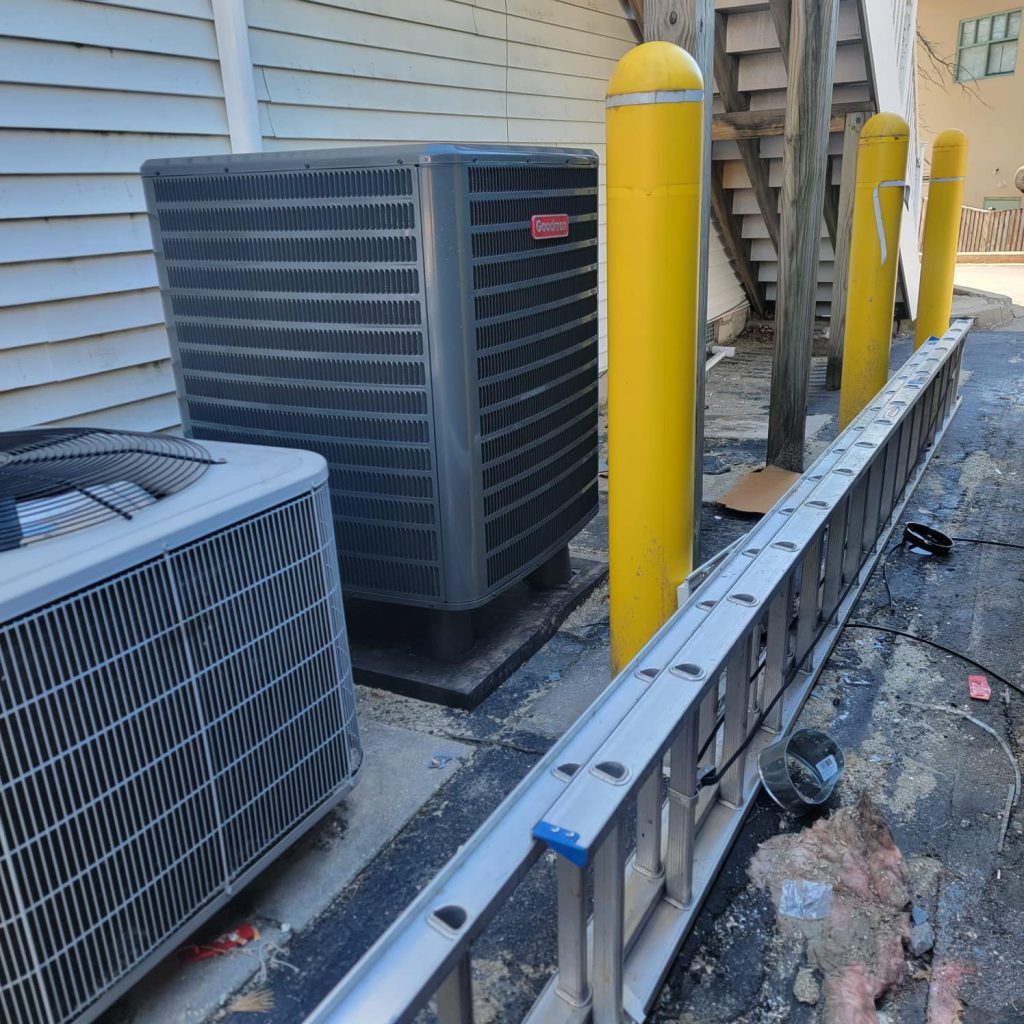Mastering HVAC For Property Management: A Comprehensive Guide
Property management has become increasingly reliant on HVAC systems to ensure tenant comfort, energy efficiency, and cost savings. HVAC systems play a critical role in maintaining indoor air quality, temperature control, and overall building performance. As a property manager, understanding HVAC systems is essential for maintaining a safe and comfortable environment while optimizing operational efficiency.
Whether you're managing residential or commercial properties, HVAC systems are one of the most important aspects of your responsibilities. Proper HVAC maintenance and management can significantly reduce energy costs, extend equipment lifespan, and improve tenant satisfaction. This article will serve as your ultimate guide to HVAC for property management, providing actionable insights and expert advice.
With the growing emphasis on sustainability and energy efficiency, property managers must stay updated with the latest HVAC technologies and best practices. This comprehensive guide will explore everything from system basics to advanced strategies for maintaining and optimizing HVAC systems in property management.
Read also:Tamu Parking Mexico Brazil Exploring The Ultimate Travel Experience
Understanding HVAC Systems in Property Management
What is HVAC and Why is it Important?
Heating, Ventilation, and Air Conditioning (HVAC) systems are integral to creating a comfortable and healthy indoor environment. These systems regulate temperature, humidity, and air quality within buildings. For property managers, HVAC systems are crucial for maintaining tenant satisfaction, ensuring compliance with health and safety regulations, and managing operational costs.
Modern HVAC systems offer advanced features such as programmable thermostats, zoning capabilities, and energy-efficient designs. Understanding the components and functions of HVAC systems enables property managers to make informed decisions regarding maintenance, upgrades, and replacements.
Key Components of HVAC Systems
- Heating System: Includes furnaces, boilers, and heat pumps that provide warmth during colder months.
- Ventilation System: Controls air movement and quality through fans, ducts, and air purifiers.
- Air Conditioning System: Regulates temperature and humidity levels using compressors, evaporators, and condensers.
- Thermostats: Monitor and control system operations based on user preferences.
- Filters: Remove airborne particles and improve indoor air quality.
Each component plays a vital role in the overall performance of the HVAC system. Regular inspections and maintenance ensure these components function optimally, reducing the risk of breakdowns and costly repairs.
Benefits of Effective HVAC Management for Property Managers
Effective HVAC management offers numerous benefits for property managers and tenants alike. By prioritizing HVAC maintenance and optimization, property managers can:
- Improve tenant comfort and satisfaction
- Reduce energy consumption and costs
- Extend equipment lifespan
- Enhance indoor air quality
- Minimize repair and replacement expenses
Investing in proper HVAC management not only improves tenant experiences but also increases property value and marketability. Properties with well-maintained HVAC systems are more attractive to potential tenants and buyers, providing a competitive edge in the market.
Common HVAC Challenges in Property Management
Identifying HVAC Problems
Property managers often face challenges related to HVAC systems, including:
Read also:Jill Clayburgh A Legendary Actress Who Redefined Hollywood
- Inconsistent temperatures across different zones
- High energy consumption and costs
- Frequent system breakdowns
- Poor indoor air quality
- Noise and vibration issues
Regular inspections and preventive maintenance are essential for identifying and addressing these issues before they escalate. Property managers should establish a routine maintenance schedule and document system performance to track trends and address recurring problems.
Solutions for HVAC Challenges
To overcome common HVAC challenges, property managers can implement the following strategies:
- Upgrade to energy-efficient equipment
- Install programmable thermostats
- Implement regular filter replacements
- Conduct seasonal maintenance checks
- Train staff on HVAC system operations
These proactive measures help ensure HVAC systems operate efficiently and effectively, reducing the likelihood of unexpected issues and associated costs.
Best Practices for HVAC Maintenance in Property Management
Maintaining HVAC systems requires a systematic approach that combines regular inspections, preventive maintenance, and prompt repairs. Property managers should:
- Develop a comprehensive maintenance schedule
- Partner with qualified HVAC professionals
- Document system performance and maintenance activities
- Provide training for property management staff
- Monitor system performance using smart technologies
Implementing these best practices ensures HVAC systems remain in optimal condition, minimizing downtime and maximizing efficiency. Regular maintenance also helps identify potential issues before they become serious problems, saving time and money in the long run.
Energy Efficiency and HVAC Systems
Importance of Energy Efficiency
Energy efficiency is a top priority for property managers seeking to reduce operational costs and environmental impact. HVAC systems account for a significant portion of a building's energy consumption, making them a key focus area for efficiency improvements. By optimizing HVAC systems, property managers can:
- Lower utility bills
- Improve tenant satisfaction
- Enhance building sustainability
- Comply with energy regulations
Investing in energy-efficient HVAC technologies and practices not only benefits the environment but also provides financial returns through reduced energy costs.
Strategies for Improving HVAC Energy Efficiency
To enhance HVAC energy efficiency, property managers can:
- Upgrade to ENERGY STAR-rated equipment
- Implement smart thermostats and controls
- Seal ductwork and improve insulation
- Optimize system sizing and design
- Conduct regular energy audits
These strategies help maximize HVAC system performance while minimizing energy consumption. Property managers should evaluate their current systems and identify opportunities for improvement, leveraging available incentives and rebates to offset costs.
Indoor Air Quality and HVAC Systems
Impact of HVAC on Indoor Air Quality
Indoor air quality (IAQ) is a critical aspect of property management, directly affecting tenant health and comfort. HVAC systems play a significant role in maintaining IAQ by controlling temperature, humidity, and air circulation. Poor IAQ can lead to:
- Sick building syndrome
- Respiratory issues
- Decreased productivity
- Increased absenteeism
Property managers must prioritize IAQ by ensuring HVAC systems are properly maintained and optimized for air quality control.
Enhancing IAQ Through HVAC Systems
To improve IAQ, property managers can:
- Install high-efficiency air filters
- Perform regular duct cleaning
- Monitor and control humidity levels
- Implement air purification technologies
- Ensure proper ventilation
These measures help create a healthier indoor environment, enhancing tenant satisfaction and reducing health-related issues.
Cost Management and HVAC Systems
Understanding HVAC Costs
Managing HVAC costs is a critical aspect of property management. HVAC expenses include:
- Equipment purchase and installation
- Maintenance and repair
- Energy consumption
- Replacement and upgrades
Property managers must balance these costs with the need for reliable and efficient HVAC systems. Understanding the factors influencing HVAC costs enables better budgeting and decision-making.
Strategies for Reducing HVAC Costs
To manage HVAC costs effectively, property managers can:
- Negotiate long-term service agreements
- Implement energy-saving measures
- Prioritize preventive maintenance
- Explore financing options for upgrades
- Utilize energy-efficient technologies
These strategies help reduce HVAC-related expenses while maintaining system performance and tenant satisfaction.
Emerging Trends in HVAC for Property Management
Smart HVAC Technologies
Advances in technology are transforming HVAC systems, offering innovative solutions for property managers. Smart HVAC technologies include:
- IoT-enabled sensors and controls
- Machine learning for predictive maintenance
- Cloud-based monitoring and analytics
- Automated system optimization
These technologies enhance system performance, reduce energy consumption, and improve tenant experiences.
Sustainability and Green HVAC Solutions
Sustainability is a growing focus in property management, driving the adoption of green HVAC solutions. Property managers can explore:
- Geothermal heat pumps
- Solar-powered HVAC systems
- Refrigerants with low global warming potential
- Energy recovery ventilators
Implementing sustainable HVAC solutions not only supports environmental goals but also provides long-term cost savings and enhances property value.
Conclusion
Mastering HVAC for property management requires a comprehensive understanding of system components, maintenance practices, and emerging trends. By prioritizing HVAC management, property managers can improve tenant satisfaction, reduce costs, and enhance building performance. Key takeaways include:
- Regular maintenance is essential for optimal system performance
- Energy efficiency measures provide financial and environmental benefits
- Indoor air quality is a critical factor in tenant health and comfort
- Emerging technologies offer innovative solutions for HVAC management
We encourage property managers to implement the strategies discussed in this guide and stay updated with the latest HVAC advancements. Share your thoughts and experiences in the comments below, and consider exploring related articles for additional insights into property management and HVAC systems.
Table of Contents
- Understanding HVAC Systems in Property Management
- Benefits of Effective HVAC Management for Property Managers
- Common HVAC Challenges in Property Management
- Best Practices for HVAC Maintenance in Property Management
- Energy Efficiency and HVAC Systems
- Indoor Air Quality and HVAC Systems
- Cost Management and HVAC Systems
- Emerging Trends in HVAC for Property Management
- Conclusion
For further reading, consult authoritative sources such as the U.S. Department of Energy, ENERGY STAR, and the American Society of Heating, Refrigerating and Air-Conditioning Engineers (ASHRAE) for comprehensive information on HVAC systems and best practices.
Article Recommendations


